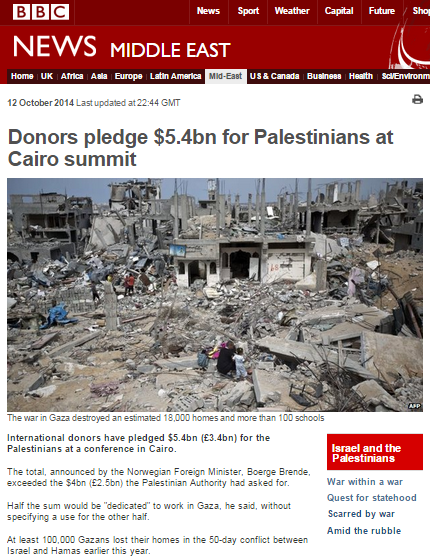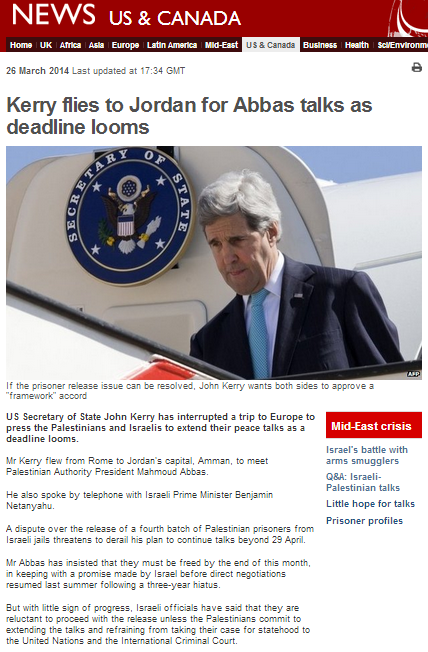Last month visitors to the BBC News website saw the first English language report on a missile attack from the Gaza Strip since the beginning of the year – albeit over 24 hours after the incident took place. That of course does not mean that there had been no missile attacks on Israeli civilian communities between January and August: seven previous missile attacks, along with twelve mortar attacks, had in fact taken place during that time. However, the BBC had chosen not to report them to its English-speaking audiences.
Late on the evening of September 14th another attack took place.
“The projectile hit an empty field in the Eshkol region, next to the southern Gaza Strip, according to a statement from the Israel Defense Forces.
As Israel’s alert system identified that the projectile was bound for an unpopulated area, no siren was sounded in the region.”
The IDF later responded with strikes on three Hamas installations in the Gaza Strip.
This time the BBC reverted to its previous pattern of reporting: while there was no coverage of the attack on the BBC News English language website, visitors to the BBC Arabic site found a report on the Israeli response to the attack.
The BBC’s record of reporting cross-border missile fire since the beginning of 2016 is as follows:
January 1st: BBC News ignores Gaza missile attacks, BBC Arabic reports Israeli response
January 24th: BBC News ignores Gaza missile attack again – in English
March 11th: BBC News continues to ignore missile attacks on Israelis – in English
March 15th: missile attack not reported.
May 6th: Patchy and selective BBC News reporting of Gaza border incidents
May 25th: BBC News fails to report another Gaza missile attack to English-speakers
July 1st: Another Gaza missile attack ignored by the BBC
August 21st: Response reported in Arabic, attack and response reported a day later in English.
September 14th: Response reported in Arabic.
The same pattern of reporting has been evident since the end of the conflict between Israel and terrorists in the Gaza Strip in 2014, meaning that English-speaking BBC audiences – including its funding public – are still not receiving the services pledged to them.




